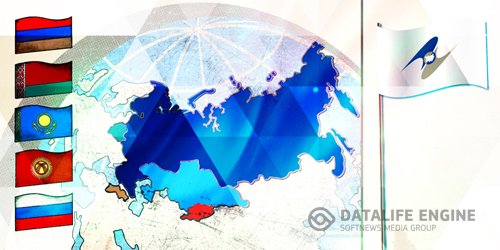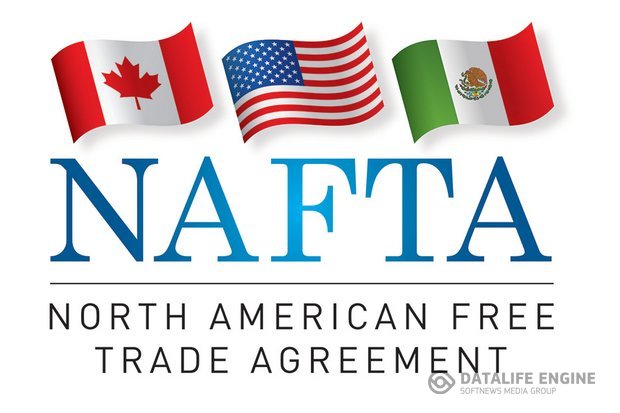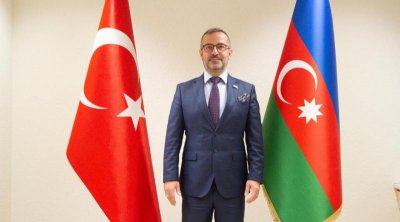Gündəm, Dünya
18 fevral 2022
1671
RESEARCH PAPER “Evaluating the effectiveness of the Eurasian Economic Union”

JAMAL MAMMADLI
Azerbaijan State University of Economics/ International School of Economics/ World Economy
camalmammadli14@gmail.com
Aghdam / Azerbaijan
2021
Introduction
The Eurasian Economic Union (EAEU) is a newcomer among regional integration organizations. It has been operating as a customs union since 2011, and as an economic union since 2015. In addition to geopolitical objectives, it is based on a specific long-term economic agenda. In this context, the EAEU was established to help its member states make the most of intraregional economic ties, modernize their national economies, and forge an environment conducive to improving their global competitiveness. A single market for goods, services, capital, and labor is at the heart of the Eurasian integration process. The EAEU has already been reinforced with supplementary integration infrastructure, including the EAEU Court, the Eurasian Development Bank, and the Eurasian Fund for Stabilization and Development.
Establishing the EAEU was a major achievement for its members after they had repeatedly endured two integration “false starts” in the 1990s and 2000s (namely, the 1995 Customs Union and the 2003 Common Economic Space idea), but they still have many obstacles to clear.
The Union is already a functioning entity. This statement does not raise any particular objections, unless the bar is set too high, and when compared to the European Union, the regional integration benchmark, expectations are set too high. However, if the bar is set lower, with the EAEU placed alongside other regional integration projects with varying levels of depth and success — NAFTA, MERCOSUR, ASEAN, Cooperation Council for the Arab States of the Gulf (GCC), South African Customs Union (SACU) — then a more adequate framework for analyzing the relative standing of the EAEU becomes feasible.
Evolution of Eurasian institutions: From two false starts to a functioning customs union
From an ideological perspective, this large-scale international project was born in a speech given by Nursultan Nazarbayev, President of the Republic of Kazakhstan, in March 1994 at Moscow State University. President Nazarbayev's speech presented a trailblazing integration paradigm emphasizing the need to create an Eurasian Union with a clear focus on economic matters. In practical terms, the starting point was the year 2007.
It has taken 20 years to implement the integration idea, and there were several false starts along the way. During that time, the Commonwealth of Independent States defused many serious threats of disintegration. The Transport and Electric Power Industry Councils, which managed to ensure technological cohesion and preserve power systems, have played a special role. Still, for a number of objective reasons, as an organization, the CIS has only managed to secure a “civilized divorce”.
In 1995, the “Troika” (Belarus, Kazakhstan and Russia) —the three countries that still form the nucleus of the integration association (Vinokurov, 2010) — signed the Customs Union Treaty. That instrument was designed to remove barriers hampering free economic interactions between economic agents, facilitate free exchange of goods, and assure good-faith competition between the parties. This was false start No. 1.
In 2000, five states established the Eurasian Economic Community (EurAsEC). More than 100 agreements were signed under the aegis of that entity. Moreover, the EurAsEC was to become an institutional springboard for initiatives that would materialize in 2006–2010. Thus, the Customs Union Commission was technically a EurAsEC body. EurAsEC was officially dissolved on January 1, 2015, concurrently with the establishment of the Eurasian Economic Union.
In 2003, the presidents of Belarus, Kazakhstan, Russia, and Ukraine signed an agreement to create a “Single Economic Space”. The Orange Revolution of 2004 put an end to that undertaking. This constituted false start No.2.
In October 2007, the presidents of Russia, Belarus, and Kazakhstan signed the Agreement on the establishment of the customs union (CU). They also approved a two-year implementation plan. The objective was to facilitate free movement of goods in mutual trade, create favorable conditions for trading with third countries, and expand economic integration.
Quite a few people subscribed to the idea that the third attempt would also result in a failure. However, upon expiry of the scheduled two-year preparation period, on December 19, 2009, Alexander Lukashenko, Dmitry Medvedev, and Nursultan Nazarbayev met in Almaty to sign the Joint Statement on the Establishment of the Customs Union. Consequently, the Common Customs Tariff went into force in 2010. This success was at least partly attributable to the economic crisis, which encouraged the three countries to accelerate their integration efforts.
In 2011, the CU was already working at full capacity, with economic agents operating within a common customs territory and using the Common Customs Tariff. On January 1, 2012, the CU was supplemented by a package of further seventeen agreements that constitute the regulatory basis for the Single Economic Space (SES). Those agreements address a number of key issues underpinning the process of economic convergence within the “Troika”, ranging from coordination of macroeconomic policies to labor migration.
Finally, on January 1, 2015, the Eurasian Economic Union Treaty came into effect. Armenia acceded to the integration association on January 2, 2015, and Kyrgyzstan on May 8, 2015 (the decision was ratified and took effect in August 2015).
Elimination of exemptions in the single market for goods and services
The progress of Eurasian integration depends on the success of “bottom-up integration”—growth of mutual trade, mutual investments, and civilized labor migration. This requires that the “rules of the game” be uniform within the EAEU economy. The ultimate goal in the long term (until 2025) must be to increase the common market as much as possible. The events of 2015–2016 suggest that this is a tall order. Elimination of exemptions in the single market is critical to the modernization and cooperation of EAEU economies. For example, the parties have agreed to create, as of January 1, 2016, a common market for pharmaceuticals and medicines. However, due to regulatory complexities and difficulties associated with unifying the procedures governing pharmaceutical operations through the entire EAEU, the corresponding decision has been delayed by one year. Moreover, in order to make the decision politically acceptable to all member states, the fundamental move to the truly common market has been postponed to 2020 and in some parts even to 2025.
Additionally, negotiations regarding the EAEU Customs Code have been anything but easy. The code should have gone into effect on January 1, 2016, but its adoption was delayed. Member states’ economic agents are now operating without the code, relying on national laws and existing treaties and agreements. The EEC has received approximately 1,500 comments on the draft code from Belarus, Kazakhstan, and Russia. Armenia and Kyrgyzstan joined the work on the document later than the other EAEU members and are now also engaged in an active discussion of proposed amendments. In June 2016, 57 matters related to customs regulation within the EAEU remained unresolved. A discussion at the level of prime ministers of five states (Intergovernmental Council, November 16, 2016) was necessary to finally remove the last obstacles. The EAEU Customs Code will thus come into effect by mid-2017.
There are several other sensitive issues that continue to foment discord. One such issue is the unwillingness of EAEU countries other than Russia to adopt the sanctions that Russia has imposed on Ukraine. Those countries continue to conduct business with Ukrainian companies. Russia never issued official recommendations to adopt the sanctions, nor was the issue escalated to the level of the EEC. Meanwhile, a conflict of interests has arisen (in substance, if not in legal terms) between Russia's foreign policy and its trade relations with other EAEU countries.
A second issue is Belarusian manufacturers’ and trade companies’ re-exportation of EU goods, which are subject to Russian counter-sanctions (mostly, food products). For example, “Belarusian” bananas and oysters have been shipped to the Russian market. Accordingly, Russian authorities began inspecting all incoming cargo to verify that the goods came from their stated countries of origin. That resulted in considerable delays, queues at the Belarusian–Russian border, and complaints from Belarusian authorities. Eventually, the issue was resolved by imposing more stringent country-of-origin labeling requirements and introducing harsher penalties for Belarusian exporters’ non-compliance.
Relations between Russia and Ukraine deteriorated even further in 2016 when Ukrainian activists began blocking Russian vehicles moving through Ukrainian territory. In response, Russia imposed similar counter-measures on Ukrainian vehicles. That significantly handicapped Ukrainian exporters trying to deliver goods to Kazakhstan via Russia (though Russia may likely have been the true final destination for a significant portion of cargo supposedly going to Kazakhstan). A partial solution was offered by the EAEU Cargo Transportation Information System, and Ukrainian carriers eventually received the ability to make transit deliveries through Russian territory.
By the same token, there has been some progress in eliminating the exemptions stipulated by the EAEU Treaty. Preparations are underway to establish a single power market. Acorresponding international treaty will be prepared after the EEC has approved the conceptual framework for the single power market. According to the current schedule, the market will be launched in 2019. The details are still under discussion. The barebones option is a common spot market combined with cross-border power exchange mechanisms (it could be codenamed “Nord Pool Minus” referring to the Scandinavian common electric power market).
EAEU member states are beginning consultations on a very complex matter — creation of an EAEU financial regulator by 2022–2025, a supranational financial institution that would be responsible for enforcing common standards in the Union's financial markets and for providing proper regulation and supervision. No issues related to a single central bank or single currency have been officially raised to date.
A single market for oil, gas, and petroleum products is expected to emerge by 2025. The distant deadline is due to the oil and gas sector's extraordinarily important role as the source of national budget revenues. The work will proceed separately (for oil and gas) under two programs and according to two roadmaps.
The efforts related to the finalization of the Customs Code and the creation of common pharmaceutical, power, oil, and gas markets and a single financial regulator represent components of the same process — elimination of exemptions from the EAEU Common Market. In practical terms, that process is rather convoluted and controversial. It is only logical to assume that the final solutions will be the product of mutual concessions.
Public opinion
The broad public is generally supportive of Eurasian integration. According to public opinion monitoring conducted by the Eurasian Development Bank since 2012 as part of the EDB Integration Barometer project, public approval ratings of the Eurasian integration project within the EAEU range from 46% (in Armenia) to 81% (in Kyrgyzstan). Thus, a representative survey conducted in May–June 2016 showed that EAEU approval ratings in Kyrgyzstan, Kazakhstan, Russia, and Belarus are rather high at 86%, 74%, 69%, and 63%, respectively. Conversely, in Armenia the level of support for the country's involvement with the EAEU has dropped to 46%. This may have been caused by the escalation of the Nagorno-Karabakh conflict at the time the survey was taken, but other interpretations are also possible (EDB, 2016).
Any interpretation or comparison of these figures with Eurobarometer data should allow for the influence of certain factors. People are truly supportive of the idea of Eurasian integration. This is true for the younger generation (18– 30 year-olds): their support for Eurasian ideas is lower than that of the older generation but is still quite high. It should be noted, however, that people in Russia, Kazakhstan, Belarus, etc. support the Eurasian Union “in advance”, focusing on ideas rather than the practical implementation of those ideas (at least for now). In the European Union, Eurobarometer figures are much more modest. Standard approval ratings fluctuate within the 50–55% range, largely because Europeans consider the specific long-term realities of the European integration project. Still, the public's overall favorable attitude towards Eurasian integration creates a generally positive background and establishes confidence needed for implementing integration policies.
Conclusion
The EAEU is a new reality of the post-Soviet space. Its successes and stumbling blocs should be realistically assessed. While the direct comparison to the European Union can be misleading, it also makes more to access the EAEU on a somewhat smaller scale. In this regard, it is comparable to other general-purpose regional integration organizations, in particular customs unions or free trade areas —NAFTA, MERCOSUR6, Cooperation Council for the Arab States of the Gulf, and the South African Customs Union.
On the one hand, the Eurasian Economic Union is not a perfect “success story” worthy of being quoted in textbooks. After an initial phase of rapid growth, it may have hit a short-term ceiling by 2016. Much time may be necessary to break through that ceiling. On the other hand, it has achieved much and is quite viable. Its founding treaty and its institutions are working. The same applies to the common labor market. There is some progress in the development of common technical regulations (a total of 36 such regulations have been finalized to date). Integration effects will be maximized by realizing existing plans in these areas and implementing some more specialized initiatives (pertaining to, for instance, infrastructure, industrial policy, the agricultural and industrial complex, labor market, a single pension space, and research and education cooperation).
The EAEU is best viewed as a functioning customs union with a rich additional agenda. It features its own successes and stumbling blocks. Its structural characteristics are actually not unique. Economic domination by Russia? South Africa's weight in the South African Customs Union is even greater; the US dominates NAFTA. Raw materials account for the overwhelming share of total exports? Oil means even more for the Cooperation Council for the Arab States of the Gulf; MERCOSUR exports also have a pronounced bias toward raw materials. Nascent trade and economic conflicts within the Union? The history of MERCOSUR, ASEAN, NAFTA, and other regional integration organizations is replete with such conflicts. In a word, both the EAEU's achievements and its limitations are “normal”. The EAEU is a new reality for the investor community, too. A common market has been created in the territory of five states —a market that makes it possible to work from almost anywhere. Despite the existing imperfections in the Union's operating mechanics, it has already become a functioning common market with a relatively defined development roadmap. The top priority is to complete the work aimed at creating common markets for goods and services and eliminating existing exemptions. In doing so, it is critical that the alignment of the Common Customs Tariff be maintained at a high level.
The second task is to continue to methodically eliminate/unify the hundreds of remaining NTBs—from goods certification rules to special importer status.
The third task is to efficiently coordinate macroeconomic (and particularly monetary) policies. Without such coordination, the “economic fabric” of the nascent integration association may unravel.
Finally, it is necessary to forge numerous free trade areas and trade and economic cooperation agreements. This applies to two key trade and investment partners. The first is China. A favorable political background for a Sino-Russian agreement has already been created, and the work has begun in 2016. EAEU policies may realistically be aligned with Chinese Silk Road Economic Belt policies. Doing so will require negotiation and promotion of a common stance on infrastructural mega-projects and a detailed discussion of a Trade and Economic Cooperation Agreement between the EAEU and China. The second key partner is the European Union. In this instance, the only option available for the time being is a preliminary expert evaluation. Real progress will become possible only after the current political crisis is resolved.
References
https://rujec.org/article/27982/
https://en.wikipedia.org/wiki/Eurasian_Economic_Union
http://www.eurasiancommission.org/en/Pages/default.aspx
https://www.investopedia.com/terms/e/eurasian-economic-union-eeu.asp
https://www.chathamhouse.org/2021/05/myths-and-misconceptions-debate-russia/myth-10-eurasian-economic-union-genuine-and

Daha çox xəbər:




